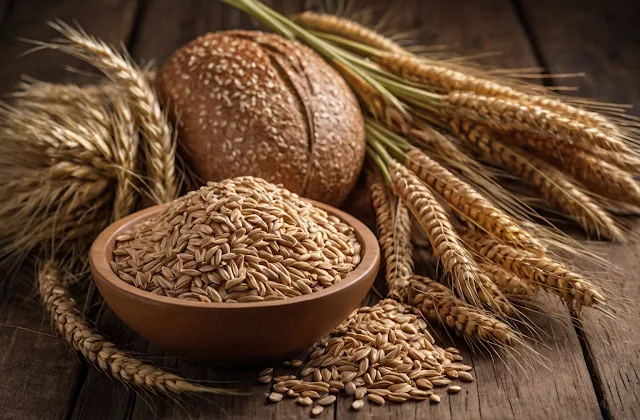Among the various issues that affect the quality of life in the modern world, the issue of healthy food choice ranks among the most high-profile. Refined grains remain the grain choice of millions; however, whole grains remain a better nutritional choice when it comes to the grains. It is less painful to switch from refined grains to whole grains as this prompts high fiber consumption delivering all-round health benefits. The question of why you should select whole grains instead of refined ones is key. Whole grains contain fiber which is beneficial. Whole grains also play an important role in a healthy and balanced diet.
1. Understanding Whole Grains:
Whole grain refers to a grain that composes the entire kernel, namely, the bran, the germ and the protein-rich endosperm layer. This exclusive dietary composition is responsible for making them high in important nutrients, including fiber. Here's why choosing whole grains matters:Here's why choosing whole grains matters:
- a) Abundant fiber content: Unrefined grains harpen fiber dietary more than the refined grains. Fiber, unlike any other factor, fulfills the major role in promoting digestive health, inducing satiety, and providing numerous benefits to our body. Consuming wholegrain as our meal option will automatically boost our consumption of dietary fiber since wholegrain is a great fiber source.
- b) Nutrient density: Wholegrains, wholesome nutrients, are chalkful of various vitamins, minerals and phytonutrients. The best thing is that when we eat whole grains, we get the nutrients we need on top of fiber content, and we therefore meet the nutritional needs: starches and minerals.
- c) Complex carbohydrate source: Whole grains are recognized as a rich resource of complex carbohydrates that give long sustain energy, and also take part in healthy blood sugar control. The fiber found in whole grains is the main reason for which digestion slows down and glucose release happens gradually instead reaching the bloodstream in a more gradual manner thus blood sugar becomes better controlled.
2. The Benefits of Increased Fiber Intake:
Selecting whole-grains and taking them for general fiber content is good for your health. Here are some advantages of incorporating more fiber into our diet:Here are some advantages of incorporating more fiber into our diet:
- a) Improved digestive health: Dietary fiber is essential for routine bowel movements, bestowal constipation, as well as a healthy digestive system. It tends to bulken up the stool that suitably assists in its smooth passing through the intestines and decreases the likelihood of gastric problems.
- b) Weight management and satiety: High-fiber foods are the ones that come out as more filling, which results in us are feeling fuller for a longer time. Such behavior will prevent further consumption of food during the mealtime and between meals, which, in turn, will contribute to weight management.
- c) Reduced risk of chronic diseases: A diet enriched with fibers has been shown to be a protective measure against development of chronic complications in particular heart diseases, type 2 diabetes and some cancers. The vital fiber inwhole grains helps decrease the number of cholesterols, while the non-dissolvable fiber maintains a healthy gut.
- a) Reading labels: When shopping for grain ingredients, for example, favouring bread, pasta, or cereals, label checking is important. In some cases, it may be hard to find items that contain whole wheat so you can try seeking products like "whole grain" and "whole oat" as their main ingredients. It will help you choose the right product that contains whole grains.
- b) Exploring variety: Whole grains are available in diverse kinds, for example, brown rice, quinoa, whole wheat, oatmeal, and barley are some of the many forms. If you consider whole grains as your main food ingredients, explore different kinds of whole grains to bring more fun to your menu and make your nutrition more diverse.
- c) Substitution in recipes: Substitute refined grains to wholegrains in your recipes so to ensure that the whole grain replacements are incorporated into your diet. For instance, substitute refined flour with whole wheat flour; or switch to whole grain noodle from the regular pasta.

